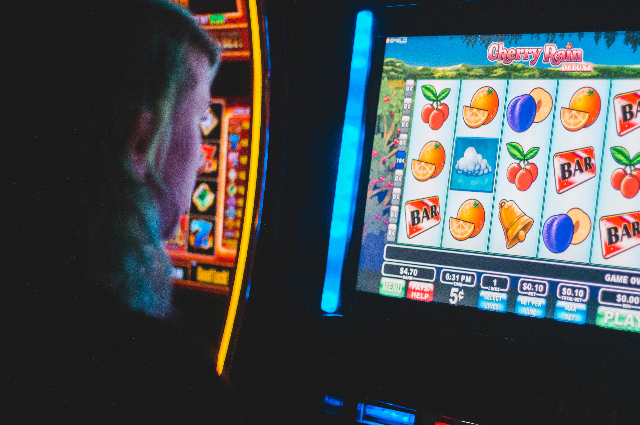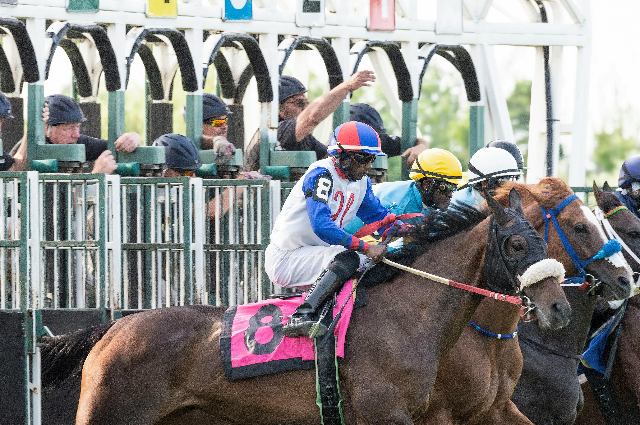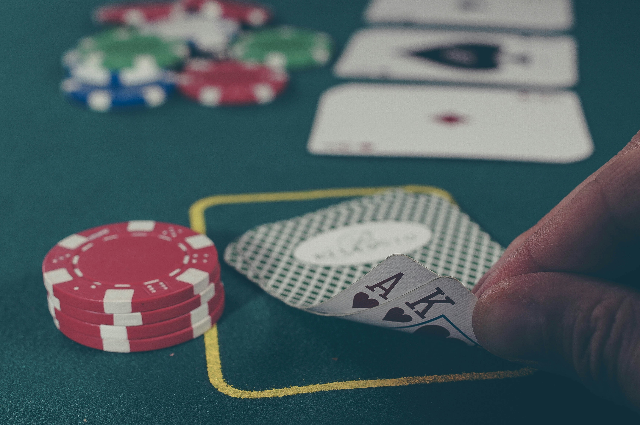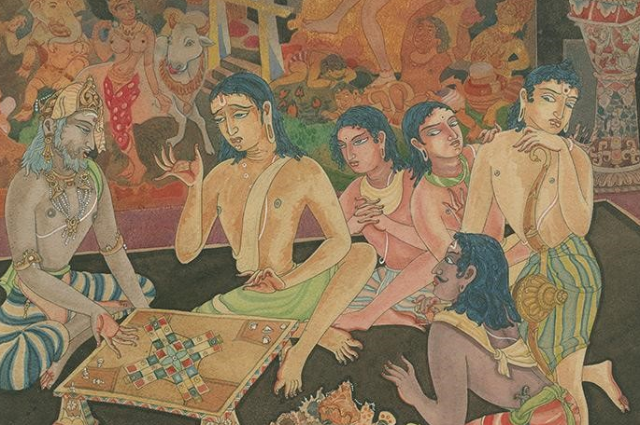
Introduction
Sporting activities have been deep-rooted in society throughout history. Since the dawn of modern civilization, the competitive spirit has driven people to participate in sports and athletic endeavours. However, the opportunity to engage in elite sports is limited to a tiny fraction of the population possessing the necessary combination of physical ability, talent, determination, and surroundings.
To address the gap between elite sports and the general population, fantasy sports games have emerged as a solution. These games allow ordinary individuals to immerse themselves in elite professional sports and feel connected to the action. Consequently, fantasy sports have become increasingly popular as a form of personal entertainment, especially over the past two decades and notably in India over the last five years. Technological advancements, the growing popularity of non-cricket sports, recognition from event organizers regarding fan engagement potential and the spread of fantasy sports operators have all contributed to this growth.
This increased visibility has put fantasy sports games in the public eye. To foster trust and confidence among the broader population and ensure continued sector growth, fantasy sports operators must adhere to relevant laws including both central and state regulations in the case of India.
Ancient origins of gambling in India
The roots of gambling in India stretch back to ancient times as depicted in texts like the Ramayana and the Mahabharata. These texts suggest that gambling activities may have commenced as early as 7300 BC involving games like chess with dice and later astragali. A notable tale involves Prince Yudhishthira Paandava who suffered significant losses in a gambling game leading to take-over from his own kingdom.
Historical evolution and regulations
Over time, gambling evolved with the introduction of various games and forms of betting including wagering on sports such as ram fights, cock fights and horse racing. The establishment of gambling boards known as Aksa or Devana and early casinos marked significant milestones in India's gambling history. Regulations were also implemented with taxes imposed on player winnings and measures taken to ensure fair play.
British influence and regulatory changes
The influence of British colonialism further shaped India's gambling landscape with the popularity of sports like cricket and horse racing growing substantially. However, concerns over the spread of gambling led to the enactment of the Public Gambling Act in 1867 which banned gambling houses. Despite this, certain games like Paplu (Indian Rummy) were later legalized although gambling as a whole remained illegal in India.
Modern Developments: Matka gambling, Smartphones and Cryptocurrencies
In the 21st century, new forms of gambling emerged such as matka gambling in Mumbai which involved betting on rates from the New York Cotton Exchange. Technological advancements including smartphones and online platforms have facilitated the expansion of the gambling industry. Moreover, the rise of cryptocurrencies has introduced new challenges and opportunities by contributing to the unregulated nature of online gambling in India.
What are exactly fantasy gaming apps?
Fantasy sports is the practice of strategically selecting players you believe will perform exceptionally well in a particular match such as cricket, football or baseball. From the pool of available players typically 22 in cricket and football, you choose 11 whom you anticipate will excel. Your success is determined by how these chosen players perform during the match. For instance, in cricket, points are awarded based on runs scored, wickets taken, catches and run-outs.
Is it just simply picking of players or more in fantasy games?
It's not simply about picking players and winning money. You're provided with a set amount of credits to 'purchase' players for your team usually around 100 credits for 11 players. Each player is priced differently, so you must strategize within the credit constraints by balancing between selecting top-performing players and managing your budget. Additionally, you're required to select players from both teams by adhering to certain team composition rules, such as having either a 6-5 or 7-4 split in an 11-member team.
Participating in money-earning contests typically involves paying an entry fee which generally ranges from Rs 15 to Rs 50. To compete for the highest prize which can be as substantial as Rs 1 crore, you must not only assemble the perfect 11 players but also designate a captain and vice-captain (or triple captain in some cases). These designated players earn you bonus points, with the captain earning double points and the vice-captain earning 1.5 times the points of other players. Thus, to maximize your chances of winning the top prize you need to not only select the best-performing players but also correctly designate the most impactful players for bonus points. Winning the top prize is highly challenging due to the need for a 'differential'—a player whose exceptional performance is unexpected by most, yet you've chosen as your captain or vice-captain.
Contemporary Perspectives and Legal Status
Despite the historical and cultural significance of gambling in India, it remains a contentious issue that is viewed as taboo in many states. While certain forms of betting such as horse racing are permitted in some regions but the legality of gambling varies across states with most adopting a cautious approach or complete prohibition. However, the prevalence of gambling persists by reflecting the complex interplay between tradition, regulation and societal attitudes in India.
The Public Gambling Act is still in effect, prohibiting the operation of gambling establishments and the participation of players in them. However, certain states like Maharashtra, Sikkim, and Goa permit gambling activities although betting on cricket remains illegal. In 2016, the Supreme Court reflected on methods to control online gambling including slot machines and other games. Subsequently, in 2018, The Law Commission of India was established by recognizing the difficulty of completely eliminating bets but aiming to effectively regulate them.
Since the enactment of the Gambling Act in 1867, minimal changes have been made to India's betting industry and no new laws have been introduced either for or against gambling. One major issue is that the current Gambling Act does not address sports betting or provide regulations for offshore sports betting and casinos. Consequently, some Indian gamblers and casino operators exploit this legal gap.
Another significant factor is the proliferation of smartphone technology which has enabled more Indians to engage in gambling activities especially noticeable during the COVID lockdowns. Players have shown a preference for online casino sites and eSports games. Consequently, Indian gamblers have access to various forms of casino betting and when they place real money stakes online then it remains unregulated.
Famous fantasy game applications operational in India

Fantasy gaming applications like Dream11, Mobile Premier League, and My Team 11 function on a straightforward principle: users create virtual teams composed of real players they believe will perform well in upcoming real-life games. Users pay a nominal fee to enter contests, with the joint fees promised to be distributed among the winners. Points are earned based on the performance of selected players in actual matches with top-ranking users receiving prizes.
Despite resembling gambling sites with entry fees and potentially big payouts, these apps remain legal by prompting questions about the basis of their legality. Gambling laws, primarily the outdated Public Gambling Act of 1867 haven't been updated to address online platforms. Different states in India have varying perspectives on gambling with some allowing lotteries and casinos. When fantasy gaming apps emerged then the legality debates followed, leading to cases like Dream11's hearing in the Punjab & Haryana High Court.
Understanding the legality centres on distinguishing between games of chance and skill. Games of chance involve uncertain outcomes unaffected by player skill, while games of skill depend on player expertise and training. Cricket, for example, involves both skill and chance, such as the impact of a coin toss. Courts use a "skill test" to differentiate between the two, acknowledging that even skill-based games may involve elements of chance.
Evolution of Gambling Regulation in India
The Public Gambling Act of 1867 was initially enacted to discourage gambling nationwide and regulate public gambling, the Public Gambling Act of 1867 laid the groundwork for governing gambling activities. With the beginning of the Indian Constitution, gambling fell under the jurisdiction of individual states listed as Entry 34 of List II-State List of the Seventh Schedule. Consequently, each state formulated its regulations based on the foundational principles of the 1867 Act. This decentralized approach resulted in collective laws governing gambling and betting across the country by demanding a thorough examination of each state's legislation to determine the legality of gaming activities within its borders.
Legalization and variation across states
While the majority of states have imposed bans on gambling and betting but some exceptions exist. Daman, Goa, and Sikkim have notably legalized various forms of gambling, contributing to the diverse regulatory landscape of gambling in India. This variation highlights the complexity of navigating the legal framework surrounding gaming activities in different regions.
Rise of Fantasy Sports and Regulatory Framework
Fantasy sports, although recently gaining popularity for their potential monetary rewards have roots traced back to the 19th century. In these games, participants assemble virtual teams composed of real athletes by competing against each other on digital platforms for a fee. The performance of these virtual teams depends on the real-life accomplishments of the chosen athletes. The Federation of Indian Fantasy Sports (FIFS) established in 2017 as the Indian Federation of Sports Gaming (IFSG), serves as a self-regulatory body managing fantasy sports in India. Key members include Dream11, Fantasy Akhada and Khelo Fantasy Live. FIFS mandates that paid contests offered by fantasy sports platforms prioritize skill with outcomes reflecting participants' knowledge and expertise relative to their peers. This emphasis on skill-based gaming ensures a level playing field , raises a fair and transparent gaming environment.
Fantasy games: whether it's a game of skill?
Fantasy sports games mix up debates about their legality often centred around whether they are primarily based on skill or chance. A "game of skill" requires players to rely on their abilities and strategies while a "game of chance" involves luck and probabilities.
In the case of fantasy sports, they rely heavily upon being a game of skill. This means players need to use their strategic thinking to plan out their moves, assemble teams, pick the best lineup for upcoming matches time their use of in-game perks wisely and make informed decisions about whom to compete against. While there's still a small element of chance involved, it's dominated by the skill required to succeed. Fantasy sports have gained significant popularity in India with players enjoying the thrill of outsmarting opponents and earning prizes for their victories.
What makes fantasy sports even more inviting is the competitive aspect, as players enjoy the feeling of winning over others and the rewards that come with it. Prize offerings can vary across different platforms.
Given that fantasy sports primarily rely on skill rather than chance, they are considered legal in India. This sets them apart from sports betting which depends largely on luck and is therefore illegal. Fantasy sports don't fall under the category of betting thus, making them permissible under the law.
Game of Skill vs Game of Chance
The concept of gambling has evolved from its traditional brick-and-mortar setting to include modern platforms such as computers, mobile phones, and the Internet. Legal frameworks often differentiate between 'games of skill' and 'games of chance,' with 'games of skill' typically exempted from gambling laws and penalties.
In the case of State of Andhra Pradesh v K. Satyanarayana, the court determined that Rummy involves a significant element of skill due to the need to memorize card patterns and make strategic decisions, distinguishing it from purely chance-based games like 'three-card.' Similarly, in Manoranjitham Manamyil Mandram v State of Tamil Nadu, the court emphasized that whether a game is considered one of skill or chance depends on the specific circumstances of each case with no blanket rule applicable.
According to the Public Gambling Act of 1867 , games of skill are exempt from legal restrictions. The Supreme Court in Dr. R. K. Lakshmanan v. State of Tamil Nadu, defined a game of skill as one where success relies primarily on the player's knowledge, training, experience, and skill. The court clarified that the dominant element, whether skill or chance, has to be determined by the game's classification.

Horse racing as a game of skill
Furthermore, the Supreme Court ruled in Dr R. K. Lakshmanan case that horse racing qualifies as a game of skill under relevant laws, mentioning the analytical skills involved in betting and the management of jockeys.
The debate over whether Ludo is a game of skill or luck has reached the Bombay High Court, particularly concerning the gaming app Ludo Supreme. A petition alleges that the online version promotes gambling, contrasting with the original board game which is perceived as chance-based. This case highlights the evolving nature of gaming regulations and the need for legal interpretation regarding modern gaming platforms.
Legislative efforts by the Karnataka government to regulate fantasy games , online games and clubs
Legislative efforts by the Karnataka government to regulate clubs, particularly regarding gaming activities. It also delves into the evolution of gambling laws in the UK and the ongoing debates surrounding gambling definitions and the Indian government's opinion on gambling regulations.
Regulation of Clubs in Karnataka
The Karnataka government had proposed a bill to regulate clubs that aimed to curb gaming and illegal activities within club premises. The bill emphasizes revoking licenses and cancelling property franchises for clubs found engaging in prohibited activities.
Twenty years ago, gambling advertising was illegal even in the UK. However, the introduction of the national lottery in 1994 marked a shift in perception leading to the normalization of gambling activities. Today, gambling is widespread and accessible through various mediums.
Debates on gambling definition
This raises questions about the distinction between gaming and gambling as well as the differences between games of chance and games of skill. These debates highlight the complexity of regulating gambling activities.
State regulation of gambling in India
Gambling falls within the legislative powers of Indian states leading to varying regulations across the country. While most states prohibit gambling but some allow controlled gambling to boost tourism and revenue. However, measures are taken to protect locals from the negative effects of gambling.
Restrictions on casino access for locals

States like Goa and Sikkim have implemented measures to restrict locals' access to casinos, primarily through increased tariffs and entry fees. These measures aim to balance tourism and revenue generation with the welfare of local residents.
Legal challenges and court decisions
It is to be mentioned that legal challenges had been there in the state regulations such as restrictions on casino access for residents of Sikkim. Courts tend to favour state regulations when they are deemed to serve the public interest as demonstrated by past verdicts on issues like liquor consumption and online lotteries.
Lack of specific online gaming laws in India
Despite the popularity of online gaming and gambling in India, there are no dedicated laws governing these activities. This legal ambiguity has led to uncertainty and potential legal issues surrounding online card games and other forms of virtual entertainment. The complex regulatory landscape surrounding gaming and gambling activities in India and abroad highlights the need for clear and comprehensive legislation to address emerging trends in online gaming and fantasy sports.
Indian government order for blocking of 22 betting websites and applications
Indian authorities have taken action against 22 betting apps and websites by quoting their illegal operations. The Ministry of Electronics and Information Technology (MeitY) hasn't disclosed the full list of blocked operators but it's confirmed that Mahadev app and Reddyannaprestopro are among those facing blocking orders.
MeitY's actions stem from investigations by the Enforcement Directorate (ED) into an illegal betting app organisation. The ED conducted raids on the Mahadev app in Chhattisgarh uncovering unlawful activities which led to the arrest of individuals like Bhim Singh Yadav under the Prevention of Money Laundering Act (PMLA).
Minister Rajeev Chandrasekhar noted that the Chhattisgarh government had the authority to recommend shutting down these websites and apps under the IT Act but failed to do so. Consequently, MeitY intervened upon the ED's request.
The move to block these platforms follows India's implementation of a new 28% turnover tax for online gambling, casino, and horse betting that was effective on October 1, 2023. This tax is levied on the full value of bets placed by differing from gross gaming revenue-based taxes. The introduction of this tax prompted Betway's withdrawal from the Indian market.
This action is part of India's broader regulatory efforts in its online gambling sector which saw another significant change earlier in 2023 with the publication of rules to regulate online gaming. These rules emphasise compliance with existing laws and propose regulatory bodies to address player protection, addiction, financial crime and safeguarding minors.
Navigating the legality of betting apps (Fantasy games) in other jurisdictions
Fantasy Sports Legal Landscape: United States
Fantasy sports' legal status in the United States is a complex interplay between federal and state regulations. With a rising demand for fantasy sports, the government has intervened to enact laws that facilitate their regulation. Notably, an Interstate Wire Act was introduced to permit legal gambling while restricting sports betting activities.
Legislative Milestones
In 2006, the landscape shifted with the introduction of the Unlawful Internet Gambling Enforcement Act which carved out an exemption for fantasy sports from the realm of gambling or betting. However, the journey continued with the issuance of the Interactive Fantasy Sports Bill in 2014 signed by Governor Andrew Cuomo. This bill stipulated that fantasy sports could operate in New York only under licensed developers. Additionally, the legal standing varies among states with some fully embracing fantasy sports while others adopting a more cautious stance.
Fantasy Sports Legal Landscape: Australia
In Australia, the legal framework surrounding fantasy sports has undergone significant evolution. Initially considered similar to gambling, fantasy sports businesses were prohibited. However, the enactment of the Interactive Gambling Act 2001 marked a turning point. This legislation mandated that fantasy sports operators obtain online gaming licenses to ensure the legality of their platforms.
Regulatory Constraints
The Interactive Gambling Act of Australia outlines strict guidelines by prohibiting certain interactive gambling services unless they comply with defined criteria. Notably, amendments to the Interactive Gaming Act in 2015 aimed to regulate the increasing fantasy sports industry. Furthermore, a 2021 amendment highlighted the necessity for all fantasy sports operators to obtain legal licenses and offer exclusively skill-based activities.
Fantasy Sports Legal Landscape: United Kingdom
Contrasting the intricate legal landscapes of other countries, the UK presents a more settled and transparent stance on fantasy sports. Under the Gambling Act 2005, fantasy sports betting operations fall under the purview of the Gambling Commission, classified as pool betting.
Compliance Requirements
Despite the clarity, fantasy sports operators in the UK must adhere to specific rules and regulations. This involves acquiring fantasy sports betting and software licenses to ensure the legality of their services and platforms. Compliance extends to advertising standards , licensing conditions and the payment of gaming fees.
Industry Dynamics
Leading sports betting platforms like DraftKings and FanDuel have made significant strides in the UK market. Both companies have secured licenses from the UK Gambling Commission, positioning themselves to capitalize on the growing fantasy sports sector. In summary, while the legal status of fantasy sports varies across jurisdictions and the regulatory frameworks aim to balance consumer protection with industry growth and innovation.
Fantasy Gaming Apps (FGAs) and mental health in India

Concerns regarding mental health have emerged alongside Fantasy Gaming Applications (FGAs), with studies from the UK indicating that increased engagement with fantasy football correlates with poor mental health scores and negative well-being effects.
Rising use of FGAs in India and mental health concerns
The popularity of FGAs is on the rise in India potentially due to celebrity endorsements which could contribute to increased mental health concerns among users. For instance, legal actions have been taken against an FGA amid suspicions of its association with suicides in India. Despite the lack of formal studies on the mental health impacts of FGAs in India excessive usage is believed to be linked to various adverse outcomes such as depression, anxiety, social isolation substance use disorder and even suicide.
Association with gambling-related issues
Research from the US suggests that real-money FGAs may increase the likelihood of gambling-related problems. Users of FGAs might be inclined towards hardcore gambling either to enhance positive experiences from FGAs or to recover losses incurred through FGA usage. This suggests that FGAs could serve as a gateway to more severe gambling behaviours that will help highlight the need for further investigation into the prevalence and patterns of gambling disorders among Indian FGA users.
Commercial Determinants of Health and Stakeholder Roles
The situation where FGAs contribute to mental health concerns demonstrates the impact of commercial interests on public health. Addressing this issue requires collaboration among researchers, organizations, commercial entities, civil society groups and health professionals.
Recommendations for Future Research and Intervention
Future studies should focus on identifying individual risk factors associated with excessive FGA use to enable early identification and intervention for at-risk individuals. Understanding these risk factors can facilitate close monitoring and timely interventions if necessary thereby mitigating the adverse effects of FGAs on mental health.
Discouraging Participation in Certain Indian States
Fantasy gaming apps (FGAs) discourage user participation from specific Indian states like Assam, Andhra Pradesh, Nagaland, Odisha, Sikkim and Telangana due to existing regulations. Reputed FGAs explicitly state on their websites that residents of these states are not allowed to participate in cash contests due to unclear laws. Positively, other state governments are urged to adopt similar regulations and there's a call for the central Indian government to enact consistent legislation nationwide.
Financial impact and employment generation
Despite regulatory challenges, FGAs have attracted significant investments totalling 15,000 crore Indian rupees until the 2022 financial year and have provided employment opportunities for over 20,000 professionals. Given the substantial economic contributions of this industry, a complete ban on FGAs is unlikely from the Indian government's perspective.
Implementing harm reduction measures
In place of a complete ban, harm-reduction strategies are proposed. These measures include legally enforcing responsible use of FGAs, such as setting limits on time and money spent on these apps with strict monitoring by regulatory authorities. Both FGA owners and users are expected to adhere to these regulations.
Reconsideration of celebrity endorsements and advertising restrictions
Celebrities endorsing FGAs are urged to reconsider their endorsements due to potential negative impacts on users' mental health. Additionally, the Indian government and advertising platforms are encouraged to minimize the display of such endorsements.
Improved access to mental health services

The Indian government should ensure improved access to mental healthcare services, particularly for individuals experiencing mental health issues including gambling disorders, possibly worsened by FGAs. This could involve telephone helplines and easily accessible help centres. Mental health professionals should also receive training to address behavioural addiction including specific considerations related to FGA use.
Special attention to individuals and educational campaigns
Individuals such as those with pre-existing addictive disorders or psychosocial vulnerabilities must receive special care. Educational campaigns led by governmental and non-governmental organizations are essential for raising awareness about the mental health effects of FGAs. These campaigns can help identify susceptible individuals and ensure they receive the necessary support from their social circles.
Given the rising concerns regarding the mental health impact of FGAs, rigorous efforts from governmental and non-governmental entities, mental health professionals, researchers, FGA stakeholders, and users are necessary to alleviate these effects effectively.
Getting rid of these fantasy apps completely from the Indian market will be a difficult task
During the COVID-19 pandemic, college students and young adults found themselves stuck at home looking for ways to stay entertained and connected with others. Fantasy gaming emerged as a popular option by providing a fun and engaging pastime that allowed them to meet new people and escape the boredom of everyday life. This trend wasn't limited to younger generations; even the working population embraced fantasy gaming as a way to relieve stress.
Surveys conducted by organizations like the Federation of Indian Fantasy Sports revealed astonishing growth in the fantasy sports market with millions of users worldwide. This growth can be attributed to various factors including advancements in technology and increased internet usage due to the pandemic. With limited entertainment options and restricted movement, fantasy sports became a go-to leisure activity for many.
For some, especially younger individuals, participating in fantasy sports offered more than just entertainment—it provided an opportunity to earn extra money and engage in a meaningful hobby. Additionally, as esports gained popularity globally, fantasy sports emerged as a way for individuals to utilize their gaming skills to generate income which became increasingly important during uncertain times.
India, in particular, witnessed a significant flow in fantasy sports participation driven by the widespread availability and affordability of smartphones and the Internet. The popularity of mobile gaming further fueled this trend with a large portion of the population embracing fantasy games as a form of entertainment.
The appeal of fantasy sports lies not only in the enjoyment it provides but also in its potential for players to earn real money and even pursue gaming careers. Multiplayer options enhance social interaction allowing users to connect with others and expand their networks. Social media and messaging platforms further facilitate engagement among gamers.
Another aspect that can be looked up is not only Indian public can benefit but also these games have been designed in such a manner that they are addictive. Whether a person loses money or earns money while betting on every option they will be coming back and will be replaying these games to either cover the loss that they had in initial games played or to even increase profit margins through earnings per game that they played.
Also, currently the dependence on these apps for even the Indian economy is to such a level that state government taxes, central government taxes , actors , sports persons ( through endorsements , paid partnerships and advertisements ) , Sports boards like BCCI (Board of Control for Cricket in India) and even other people can survive because of these fantasy apps. Hence, the complete shutdown and boycott of these apps will result in a great negative impact on the Indian economy. The only solution left is to regulate them in such a manner that they are in compliance and it's important to levy stringent penalties in case of any infringements being done.
Conclusion
To summarise, it's been widely acknowledged that India's gambling laws or fantasy games laws urgently require improvement in terms of reflecting on the latest trends in the industry. Also, technological advancements have blurred geographical boundaries by enabling people from different states and countries to engage in online gambling. Therefore, there's a pressing need for uniform gambling legislation as the current situation is not all fantasy games comply with rules and each state has its laws permitting various forms of gambling. Lastly, concerning games wherein teams are required to be formed. There have been various legal precedents that establish that luck plays only a minimal role in these games with skill, knowledge and analytical abilities being the primary factors. This interpretation has been held even by the highest court establishing such games as a skill-based platform under Indian law unless proven otherwise.
Disclaimer:
This article intends to raise awareness about the legality of fantasy sports games and gambling. The views, ideas, opinions, and statements expressed/made and/or questions are not meant to attribute anything or hurt the sentiments of any person, religion, race, society, organization, etc. Any decision and/or act(s) of the reader(s) and/or any third party based on the text/paragraphs of the article shall be entirely at his/her/their own discretion and free will, and author or Reflections.live team shall not be responsible and/or held liable in any manner whatsoever for the same or the contents of the article or any issue arising therefrom.
This article does not intend to defame anybody. It does not intend to hurt anybody's feelings or judge anyone. The author and Reflections.live team are not liable for any sort of legal action against them. By reading this blog, readers give consent that the views in this article are factual based and readers might agree or disagree with the same for which they can’t sue the author or Reflections.live team or people associated with this blog directly or indirectly, for any sort of disagreements in case they have. Further Reflections.live team and the author have high regard and respect for all opinions.
. . .
References:



